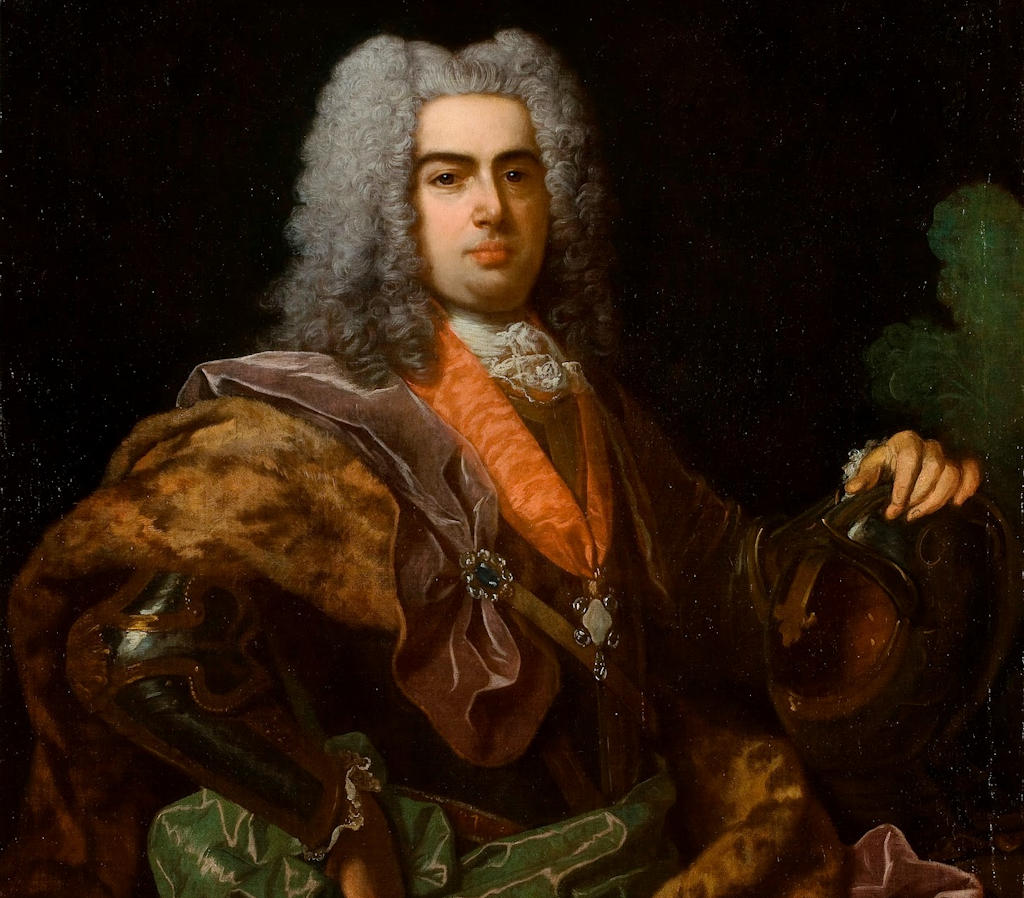King John V of Portugal(1706-1750):
John V, also known as the Magnanimous, ascended to the throne at a young age and ruled for over four decades. His reign was characterized by a grand display of wealth and power, as he commissioned opulent palaces, churches, and works of art. John V pursued a policy of neutrality during international conflicts, focusing on internal development and the expansion of Portuguese colonies in Brazil. His reign saw economic growth and cultural patronage, leaving a lasting impact on Portugal's history.Maria Anna of Austria, Queen of Portugal (1708-1750):
Maria Anna of Austria, also known as Maria Anna Josepha Antonia Regina, was the Queen of Portugal through her marriage to King John V. Born as an Archduchess of Austria, she was the daughter of Leopold I, Holy Roman Emperor, and Eleonore Magdalene of Neuburg. Maria Anna played a crucial role in Portuguese politics, serving as the regent of Portugal from 1742 to 1750 during her husband's illness. Her tenure as regent showcased her leadership abilities and dedication to the kingdom.King Joseph I of Portugal (1750-1777):
Joseph I succeeded his father, John V, and faced significant challenges during his reign. He inherited a kingdom burdened with financial difficulties and increasing tensions with foreign powers. One of the major events during Joseph I's rule was the devastating Lisbon earthquake of 1755, which led to extensive reconstruction efforts in the city. Despite his limitations, Joseph I made efforts to modernize the administration and promote economic development.Lisbon.vip Recommends
Mariana Victoria of Spain, Queen of Portugal (1750-1777):
Mariana Victoria of Spain, also known as Mariana Vitória in Portuguese, was born as an Infanta of Spain on March 31, 1718. She became the Queen of Portugal through her marriage to King Joseph I. Mariana Victoria played significant roles in Portuguese politics, serving as regent of Portugal from 1776 to 1777 during the final months of her husband's life. She continued to be an advisor to her daughter, Maria I of Portugal, during her reign, showcasing her influence and guidance in the royal affairs of Portugal.King Peter III of Portugal (1777-1786):
Peter III, known as Dom Pedro III in Portuguese, was a significant figure in Portuguese history. Born on July 5, 1717, he earned the nickname "the Builder" for his contributions to the development and progress of Portugal. Peter III ascended to the throne on February 24, 1777, ruling alongside his wife and niece, Queen Dona Maria I. His reign lasted until his death in 1786, during which he played a crucial role in shaping the destiny of Portugal.Queen Maria I of Portugal (1777-1816):
Maria I, also known as Maria the Pious, became the first queen regnant of Portugal. Her reign was marked by political and social turbulence, including conflicts with foreign powers and the onset of the French Revolution. Maria I's reign was overshadowed by her declining mental health, leading to the appointment of her son, Prince John, as regent. Nevertheless, she played a significant role in preserving Portuguese traditions and institutions.King John VI of Portugal (1792-1816):
John, son of Maria I, assumed the role of Prince Regent due to his mother's declining mental health. His regency was marked by political instability and external pressures, including the French invasion of Portugal during the Napoleonic Wars. John VI eventually became king upon his mother's death. He is remembered for his decision to transfer the Portuguese court to Brazil, escaping the French occupation and laying the foundations for the United Kingdom of Portugal, Brazil, and the Algarves.During the 18th century, Portugal faced numerous challenges, including economic crises, conflicts with other European powers, and the impact of Enlightenment ideas. Despite these difficulties, the monarchs of Portugal navigated through this transformative era, leaving their marks on the nation's history. The 18th century witnessed significant changes in politics, arts, and society, as Portugal adapted to the shifting dynamics of Europe. The legacies of these kings and queens continue to shape the collective memory of Portugal and serve as a reminder of the country's resilience in the face of adversity.



